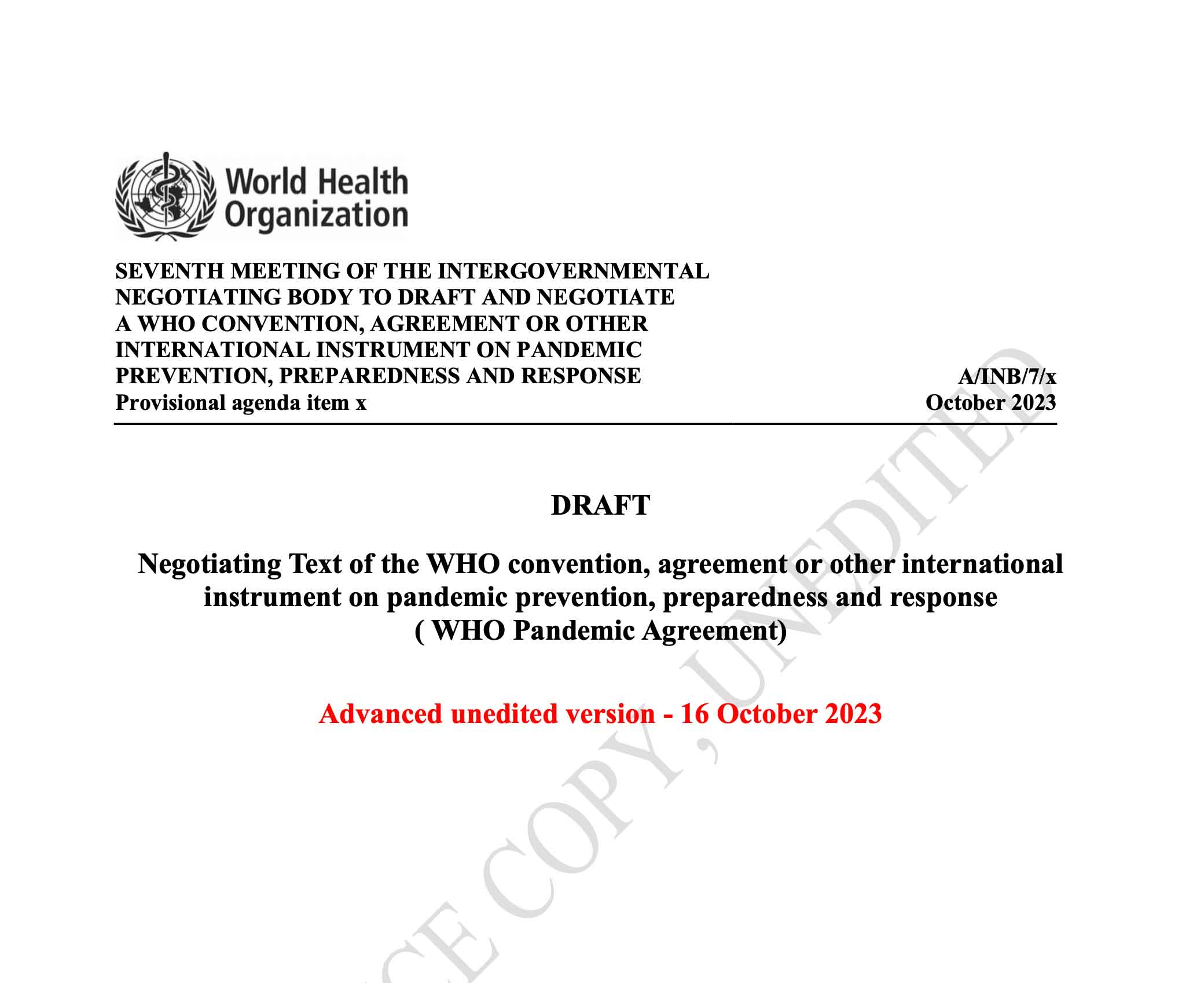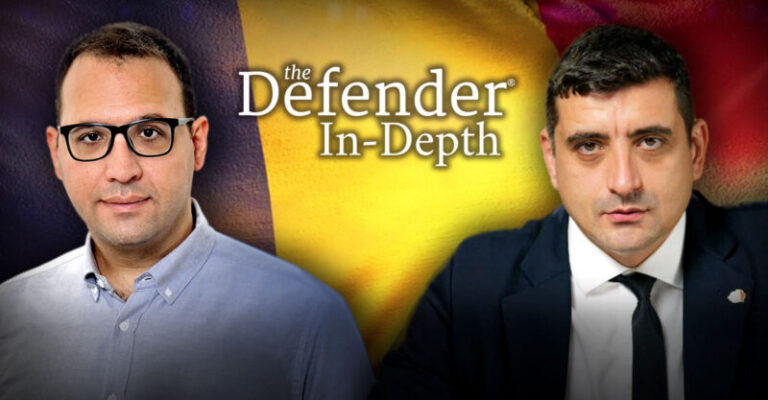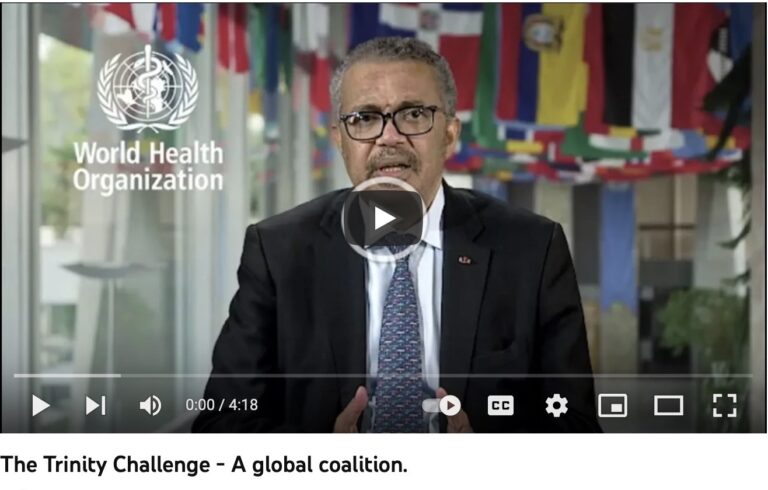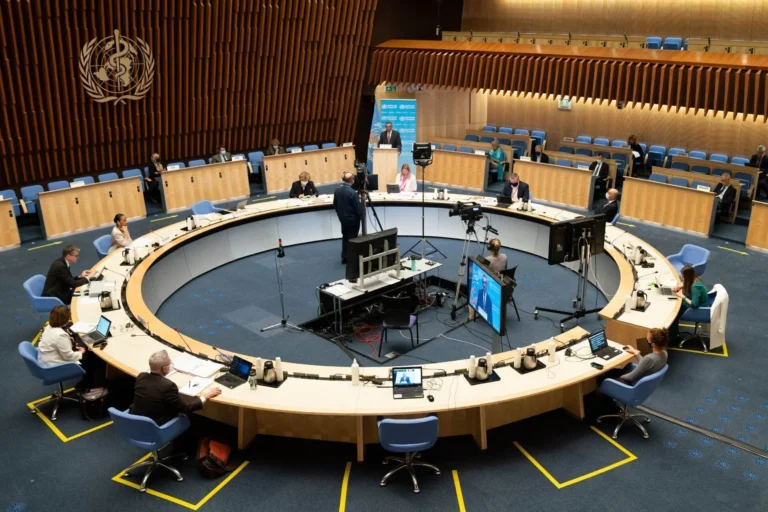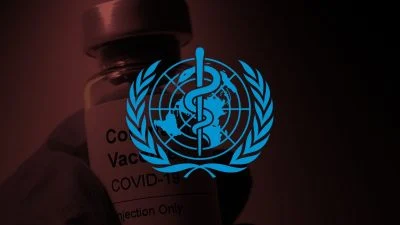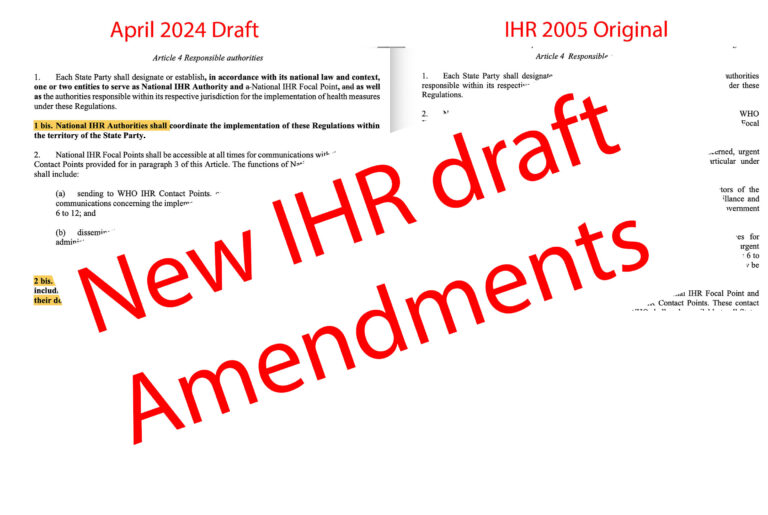The latest version of the Pandemic Treaty draft was released this week. The “Advanced Unedited Version” is the current negotiating text for the controversial WHO Pandemic Treaty.
What’s new in this treaty? Well, pharma does not like it because their profitability has been traded for equity. This is what IFPMA, the global spokesbody for Pharma, has to say about the newest draft:
“As the body representing the global innovative pharmaceutical industry in official relations with the United Nations, IFPMA has issued the following statement in response. It warns that the current proposed text does not preserve what went well for this pandemic and will slow down efforts to improve equity by having a chilling effect on the innovation pipeline for medical countermeasures. As it stands now, the world would be better served with no agreement on the current, damaging treaty text. In short, no treaty is better than a bad treaty.”
However, the things we at Door to Freedom are concerned about are still included in the latest draft, including global “open source” sharing of pandemic potential pathogens (i.e., biological weapons proliferation).
Read the October 16th 2023 Pandemic Treaty Draft (Note: this newsletter was published October 22nd. An additional Pandemic Treaty Draft was released on October 30th, and is here.)
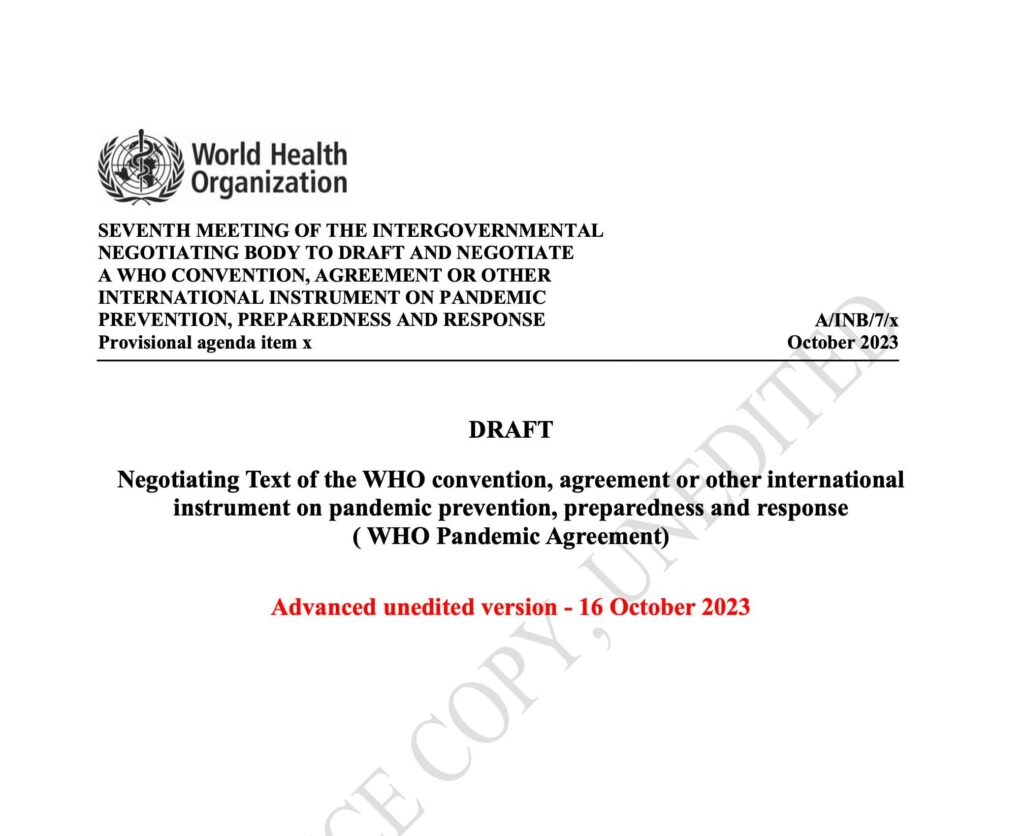
Read Prior Pandemic Treaty Drafts
WHO, Double Warning
Dr. John Campbell and Philip Kruse, attorney from Switzerland, discuss the problems with the proposed amendments to the International Health Regulations in the following video:
The mRNA manufacturers’ Stock Prices
The charts below say it all. Are these trends perhaps due to the fact that only 2% of Americans have taken a new XBB.1.5 booster? Or could it be that instigating COVID-forever-fear is failing?
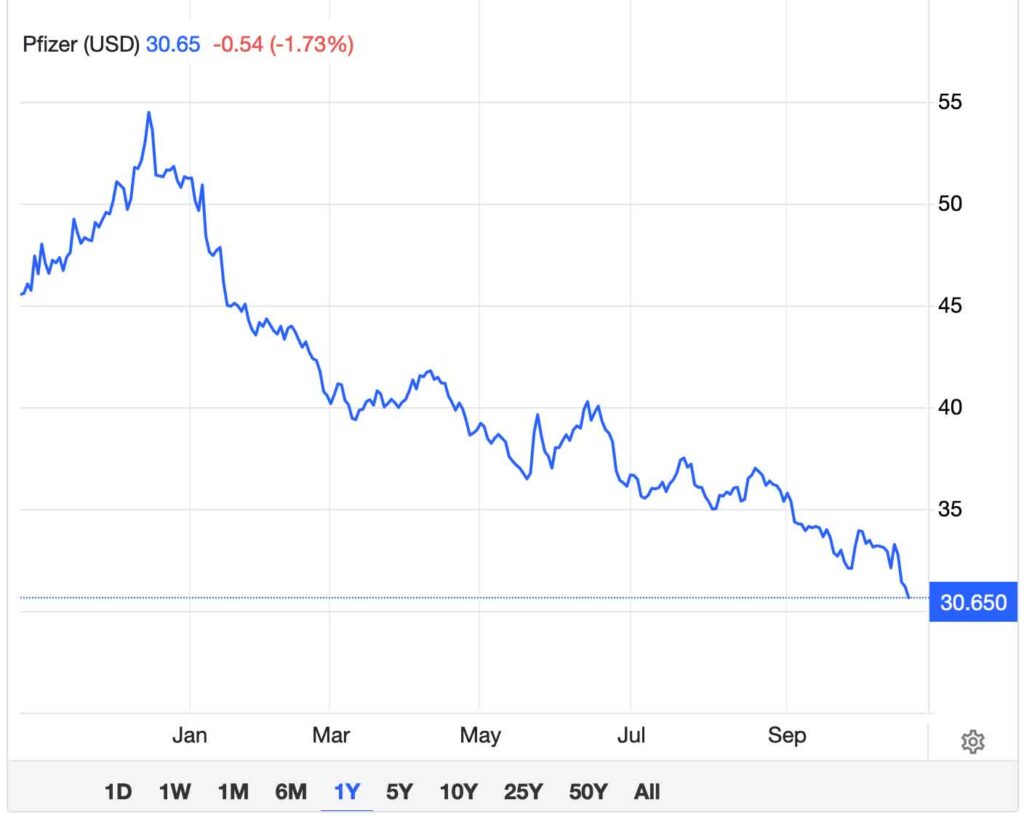
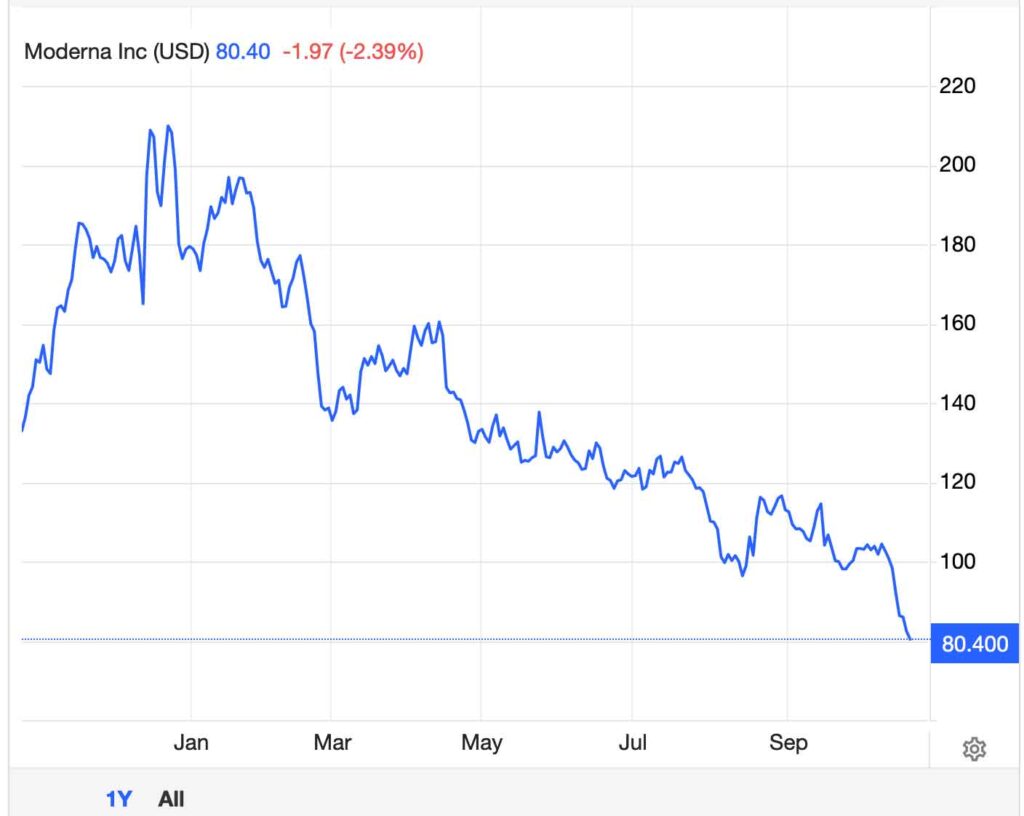
Take Action!
1. What countries can do Right Now to slow down the WHO’s global coup
Small countries can do this easily! They simply need to send a short note to the WHO opting out of the 2022 Amendments before December 1, saying they need more time to consider changes to the IHR.
The proposed amendments to the WHO’s International Health Regulations, and a proposed Pandemic Treaty/Accord/Agreement/CA+ (it has been given many names) have been created as a means of transferring management and control of pandemics or other health emergencies away from nation states to the WHO. The proposed documents require nations to impose censorship, using only the WHO’s public health narrative, and give the WHO vast powers to control what drugs may be used and which may be suppressed; control rapid vaccine development, manufacturing and deployment; create liability shields for these products; control travel at borders; require vaccine passports; and manage other aspects of life that are yet to be determined.
In May 2022, amendments that had been suggested by the United States to the WHO’s existing International Health Regulations were approved which will speed up the adoption of future amendments. This was agreed in back rooms at the World Health Assembly’s 2022 annual meeting, and there was no formal vote. The decision was made by “consensus” when no countries objected.
The amendments adopted in 2022 are still subject to the old rules, until the new amendments come into force in May 2024.
The old rules were that amendments would come into force 24 months after acceptance, and nations had a period of 18 months after acceptance to formally “opt out” of new amendments. Nations that “opt out” would be subject to the older version of the International Health Regulations instead of the new version.
The amendments adopted in May 2022 gave nations only 10 months in which to “opt out,” not 18 months, and cause the new amendments to come into force after only 12 months, not 24 months. These new timelines will apply to amendments that will be considered in May 2024. However, under the existing rules that are still in force, nations have until the end of November 2023 to opt out of the 2022 amendments that speed up the adoption of future amendments, which is 18 months after May 2022, or until the end of November 2023.
Nations that send a very brief (even one sentence) formal opt-out to the WHO regarding the May 2022 amendments will then continue to have 18 months (not 10) to opt out of future amendments, and 24 months after they are adopted, not 12, before any future amendments apply to their nation.
This will slow down the coming into force of amendments that we anticipate will be approved in May 2024, since their approval only requires a 50% plus one vote of the 194 nation members of the World Health Assembly. Instead of coming into force for nations in May 2025, they will not apply until May 2026. And for nations who opt out of the 2022 amendments, they will gain an extra 8 months (from 10 months to 18 months) in which to opt out of future amendments, after they are approved.
In addition to slowing down the “warp speed” at which the WHO is trying to gain sovereignty over nations’ health and emergency management, opting out sends a message to the world that your nation is not happy about what the WHO is doing. This could empower other nations to take the same step and will help shine a light on the proposed Treaty and amendments.
2. How can the right questions be asked of the 3 USG witnesses at the WHO Reform hearing on Tuesday–Need Your Help! Please contact their offices, support HR79, ask them to ask questions below
Here are some reps who should be on our side and some questions they should ask, followed by a compendium on the proposed IHR amendments:
Do we have any ins with any of the subcommittee members for this hearing? Here are 3 that ought to be on our side.
- Nicole Malliotakis—NY Phone: (202) 225-3371 Not a cosponsor
- Marjorie Taylor Greene—GA Phone: (202) 225-5211 Cosponsor of HR79 Exit the WHO
- Dr. Ronny Jackson—TX Phone: (202) 225-3706 Cosponsor of HR79 Exit the WHO
and others on the Subcommittee who cosponsored HR79:
- Debbie Lesko—AZ Cosponsor of HR79, Exit the WHO (202) 225-4576
- Michael Cloud—TX Cosponsor of HR79, Exit the WHO (202) 225-7742
- Rich McCormick—GA Cosponsor of HR79, Exit the WHO (770) 232-3005
And here is the office contact for the subcommittee: Phone: (202) 225-5074 Fax: (202) 225-3974
Reforming the WHO: Ensuring Global Health Security and Accountability
I would ask these questions:
- Why were the words “human rights, dignity and fundamental freedoms of persons” removed from the IHR in the proposed amendments? Does your agency support this omission?
- Has the USG made any efforts to place these ideas back into the amendments?
- How much will it cost the US to adhere to the pandemic plan in the amendments?
- What standards will the D-G use to declare a PHEIC?
- What standards will be used to turn off the PHEIC declaration?
- Why does the WHO reserve to itself the right to stop nations using certain treatments? Does the US agree with this provision? (Proposed article 43.4 notes that the WHO could ban the use of certain medications[1] or other measures during a pandemic, since its ‘recommendations’ would be binding:
“WHO shall make recommendations to the State Party concerned to modify or rescind the application of the additional health measures in case of finding such measures as disproportionate or excessive. The Director General shall convene an Emergency Committee for the purposes of this paragraph.”
- Why does the WHO reserve the right to direct nations to censor citizens and be the sole arbiter of truth in the public health sector? Didn’t COVID teach us that there can be more than one valid medical opinion, and that restricting discussion is not in our best interest?
- What right has the WHO or US government to give up the intellectual property of private corporations?
- Isn’t Transferring genetic sequence data for “pathogens capable of causing pandemics and epidemics or other high-risk situations” to other Nations or third parties, another way of describing the proliferation of biological warfare agents? (Article 44.1(f) (new)). Isn’t this prohibited or if not, shouldn’t it be?
Do you recognize Disinformation?
Dr. Robert Malone writes about the tactics currently employed by the US Government, among others.
For example, do you know what Deepfakes are? Cheapfakes? What about Astroturfing?
Tactics of Disinformation
Disinformation actors include governments, commercial and non-profit organizations as well as individuals. These actors use a variety of tactics to influence others, stir them to action, and cause harm. Understanding these tactics can increase preparedness and promote resilience when faced with disinformation.
Disinformation actors use a variety of tactics and techniques to execute information operations and spread disinformation narratives for a variety of reasons. Some may even be well intentioned but ultimately fail on ethical grounds. Using disinformation for beneficial purposes is still wrong.
Legislation we are watching:
Some people assume legislative documents are too long to read. Both items listed below are very short. Read them! 👓
HR 1122 CBDC Anti-Surveillance Act
46 Co-sponsors. 384 Words. Read the document.
HR 79 WHO Withdrawal Act
53 Co-sponsors. 251 Words. Read the document.
S444 No WHO Pandemic Preparedness Treaty Without Senate Approval Act
47 Cosponsors. 1317 Words. Read the document
Here’s our page of legislation we are watching.
Do you want to help? Have ideas?
Email us: web@doortofreedom.org
Ideas for how you can communicate with your local community:
- Check out this list of ways you can help.
- Start a book group and study the documents together
- Reach out to your church, temple, or mosque.
- Show these documents to your doctor or nurse.
- Read Dr. Nass’s article about how the Pandemic Treaty will increase pandemics.
- Brainstorm other ideas.
- Ask good questions! Ask better questions.

